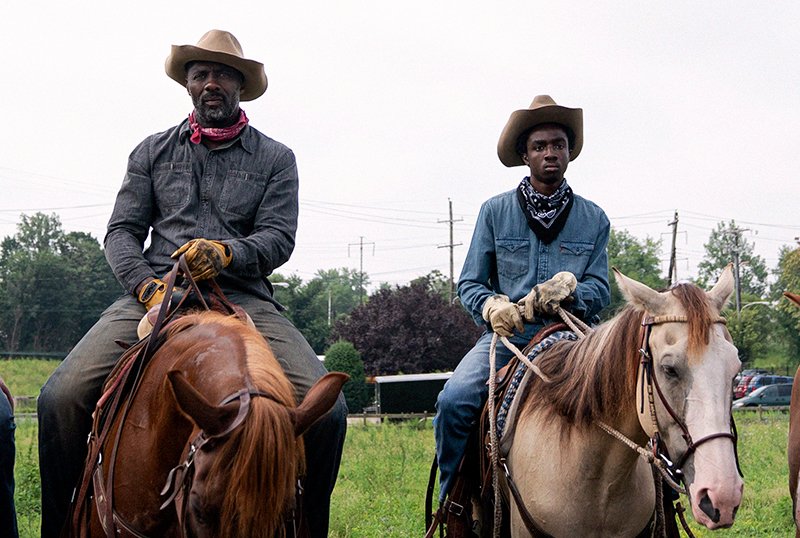‘Concrete Cowboy’ explores father-son relationship, Philadelphia’s cowboy culture
April 4, 2021
“Concrete Cowboy” earnestly explores Philadelphia’s Black cowboy subculture and the relationship between an estranged father and son. Although its coming-of-age narrative is predictable, strong performances and affectionate storytelling draw the audience into a specific and often overlooked aspect of Black culture.
Directed by Ricky Staub, the film was released April 2 on Netflix and stars Idris Elba as Harp, a respected rider and father to Cole, played by “Stranger Things” star Caleb McLaughlin. “Moonlight’s” Jharrel Jerome has a strong supporting role as Smush, a former rider now exiled from the stables for getting involved in “the street life.”
Fed up with Cole’s bad behavior in school, his mother leaves him on his father’s doorstep, forcing Cole to reconnect with a man he barely knows and choose between a life on the streets or in the stables.
Cole is quick to anger because he feels cast aside by both his parents, but the enraged facade eventually falls as he finds a home among the Fletcher Street cowboys and the horses. McLaughlin’s mature performance as Cole will no doubt lead to more dramatic feature films for the young actor, who shines in an emotional role.
Elba’s performance as Harp is understated but powerful. Unlike Cole, he never gets too riled up or breaks down, even when Cole confronts him about being a father to everyone but him. Harp shows Cole tough love, wanting to protect him from a dangerous street life. He also tells his son the story of his name, Coltrane, after saxophone player and composer John Coltrane, who Harp says is “the greatest man I ever knew that did it without a father.”
Jerome was a good addition to the cast as Smush, a friend from Cole’s past, but his involvement in local crime predictably gets both boys in trouble. From almost the first moment Smush appears on screen, audiences suspect either Cole or Smush will meet a tragic end.
This is where the film would have benefited from some original storytelling. The tough-love father trying to protect his son from the fate of street life and the teenager who rebels — ignoring his father’s advice — are familiar tropes that pull down an otherwise unique story.
One of the best things about this film are the cowboys and horses themselves. Viewers are given an inside look at the Fletcher Street Urban Riding Club, a real group of Black urban cowboys, and to a lesser extent the rich history of Black cowboy culture.
Staub’s choice to bring in real riders from the club as characters in the film was effective in bringing authenticity to the film. The acting feels natural, and the love for the beautiful creatures they care for is obvious. Cole’s first encounter with the feisty “Boo” is a major turning point in his character development as he and the angry horse find solace in each other. The bond between Cole and his horse only strengthens the bond between him and his father.
The heartwarming narrative combined with beautiful cinematography and a solid musical score makes “Concrete Cowboy” a worthwhile watch.
Rating: 3.5 Boo’s out of 5



